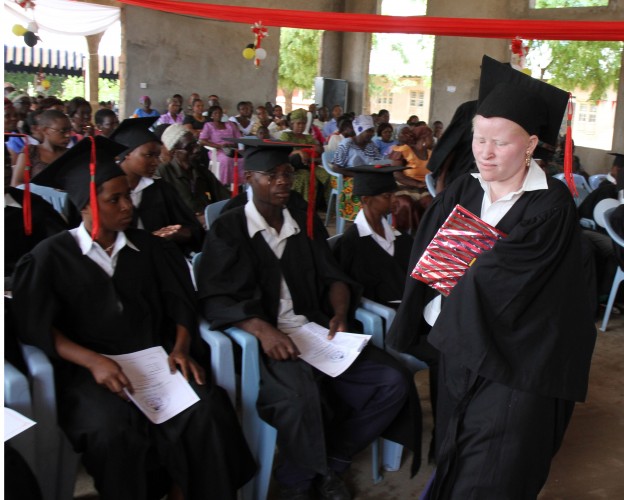News from Doug has been sporadic, but our partners on the ground have been filling us in on the trip so far. One of the most meaningful things to come out of our first awareness event in Kibondo was that a father who has been hiding his son since his birth finally felt safe enough to bring him out in public. The boy is 3 years old, and has never been into the village. The dad learned about albinism, and how to care for his son; and the little boy received his first hat, sunscreen and pair of sunglassses.
Doug met another father who has been hiding is 30 year-old daughter for 6 years – from when the killings began. He does not think it is safe to bring his daughter out in public yet, but was encouraged by the event.
It was unsettling to learn afterwards that a witch doctor was in attendance – and had been invited. However, one of the realities we accept is that witch doctors are integral to Tanzanian society, and we are better off educating them than fearing or shunning them. When I asked if the witch doctor’s opinion about albinism had changed, I was told that it had, and that he feels differently now. Apparently, he even suggested that we invite all of the witch doctors in the region to the event in 2014.
I’m not sure about going that far, but I think we are taking steps in the right direction.
Our event was attended by almost 600 people, including numerous local dignitaries and journalists. The ability to spread awareness about albinism to so many people far surpassed our expectations, and we are indebted to Reverend Bartholomew Segu for organizing the event. However, the most significant impact of our time in Kibondo will always be that a 3 year old child went to his village for the first time.
